Intro
Swollen lymph nodes in the face can be a cause for concern, as they can be a sign of an underlying infection or disease. Lymph nodes are an essential part of the immune system, helping to filter out bacteria, viruses, and other foreign substances from the body. When lymph nodes become swollen, it can be a sign that the body is fighting off an infection or disease. In this article, we will explore the possible causes of swollen lymph nodes in the face, as well as the symptoms, diagnosis, and treatment options.
The face has several lymph nodes located in the neck, under the jaw, and behind the ears. These lymph nodes play a crucial role in protecting the face and head from infection. When the lymph nodes in the face become swollen, it can cause pain, discomfort, and swelling in the affected area. Swollen lymph nodes in the face can be caused by a variety of factors, including viral or bacterial infections, allergies, and autoimmune disorders.
Causes of Swollen Lymph Nodes in the Face
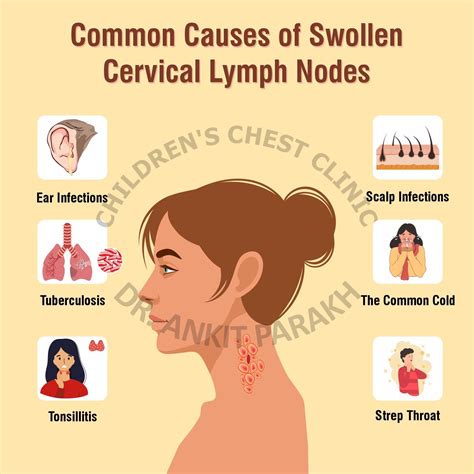
Viral Infections
Viral infections are a common cause of swollen lymph nodes in the face. The common cold, flu, and mononucleosis are all viral infections that can cause swollen lymph nodes. These infections can cause the lymph nodes to become inflamed and swollen as the body fights off the infection.Bacterial Infections
Bacterial infections such as strep throat or sinus infections can also cause swollen lymph nodes in the face. These infections can cause the lymph nodes to become inflamed and swollen as the body fights off the infection. Antibiotics may be prescribed to treat bacterial infections.Symptoms of Swollen Lymph Nodes in the Face
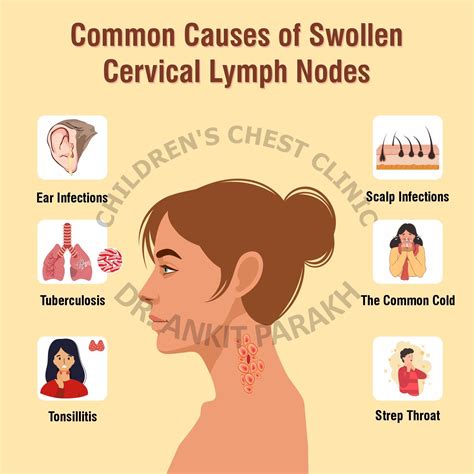
Diagnosis of Swollen Lymph Nodes in the Face
Diagnosing swollen lymph nodes in the face typically involves a physical examination and medical history. A doctor may perform a physical examination to check for swelling, tenderness, or other signs of infection. A medical history may be taken to determine if the patient has any underlying medical conditions or allergies.Treatment Options for Swollen Lymph Nodes in the Face
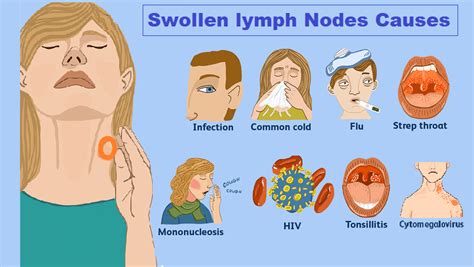
Home Remedies for Swollen Lymph Nodes in the Face
There are several home remedies that can help to reduce swelling and pain associated with swollen lymph nodes in the face. These include: * Applying a warm compress or heating pad to the affected area * Taking over-the-counter pain medications such as acetaminophen or ibuprofen * Drinking plenty of fluids to stay hydrated * Getting plenty of rest to help the body fight off infection * Avoiding strenuous activities or exercisePrevention of Swollen Lymph Nodes in the Face
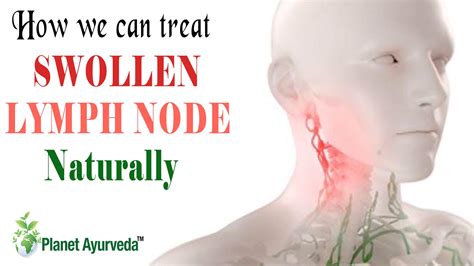
Risk Factors for Swollen Lymph Nodes in the Face
There are several risk factors that can increase the likelihood of developing swollen lymph nodes in the face. These include: * Weakened immune system * History of allergies or autoimmune disorders * Recent illness or infection * Family history of cancer or other diseases * Exposure to toxins or chemicalsComplications of Swollen Lymph Nodes in the Face
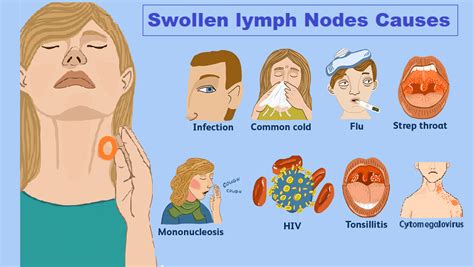
Long-Term Outlook for Swollen Lymph Nodes in the Face
The long-term outlook for swollen lymph nodes in the face depends on the underlying cause and treatment. In most cases, swollen lymph nodes in the face can be treated effectively with antibiotics, antiviral medications, or other treatments. However, in some cases, swollen lymph nodes can be a sign of a more serious underlying condition such as cancer or lymphoma.What are the common causes of swollen lymph nodes in the face?
+Common causes of swollen lymph nodes in the face include viral or bacterial infections, allergies, and autoimmune disorders.
How are swollen lymph nodes in the face diagnosed?
+Diagnosing swollen lymph nodes in the face typically involves a physical examination and medical history.
What are the treatment options for swollen lymph nodes in the face?
+Treatment for swollen lymph nodes in the face depends on the underlying cause and may include antibiotics, antiviral medications, or other treatments.
Can swollen lymph nodes in the face be prevented?
+Preventing swollen lymph nodes in the face involves taking steps to reduce the risk of infection and disease, such as practicing good hygiene and getting vaccinated against common illnesses.
What are the complications of swollen lymph nodes in the face?
+Complications of swollen lymph nodes in the face can include abscesses, cellulitis, sepsis, cancer, or lymphoma if left untreated or if treatment is delayed.
If you are experiencing swollen lymph nodes in the face, it is essential to seek medical attention to determine the underlying cause and receive proper treatment. By understanding the causes, symptoms, and treatment options for swollen lymph nodes in the face, you can take steps to protect your health and prevent complications. We encourage you to share this article with others who may be experiencing similar symptoms and to comment below with any questions or concerns. Remember to always prioritize your health and seek medical attention if you are experiencing any unusual symptoms.
